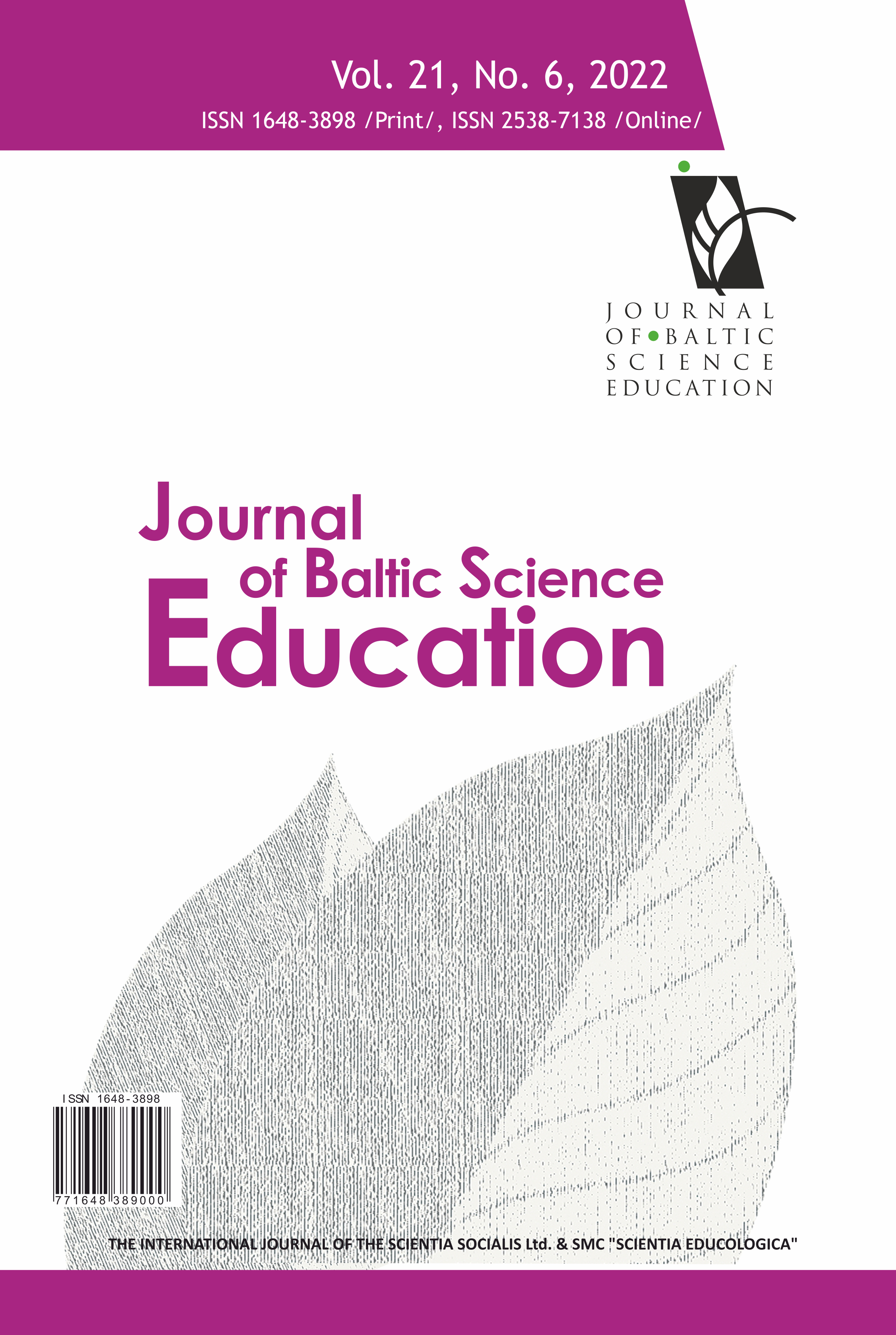SCIENCE TEACHING SELF-EFFICACY BELIEFS OF PRE-SERVICE TEACHERS: CONTEXT OF TECHNOLOGICAL PEDAGOGICAL CONTENT KNOWLEDGE AND VISUAL METAPHORS
SCIENCE TEACHING SELF-EFFICACY BELIEFS OF PRE-SERVICE TEACHERS: CONTEXT OF TECHNOLOGICAL PEDAGOGICAL CONTENT KNOWLEDGE AND VISUAL METAPHORS
Author(s): Zeynep YildizSubject(s): Social Sciences, Education, Higher Education , Pedagogy
Published by: Scientia Socialis, UAB
Keywords: pre-service teachers; primary school; science teaching; self-efficacy visual metaphors;
Summary/Abstract: It is of great importance to examine the level of science teaching self-efficacy (SE), which is related to technological developments in primary school teacher education. It is seen that this subject is not addressed in the context of technological pedagogical content knowledge (TPCK) and visual metaphors. The purpose of this research was to examine the pre-service primary school teachers' SE beliefs related to science teaching in terms of the TPCK levels and visual metaphors they created related to science teaching. For this purpose, qualitative and quantitative methods were used in the research. The research sample consisted of 75 pre-service primary school teachers. A metaphorical perception form, a science SE scale, and a TPCK scale were applied as data collection tools. It was found that the majority of pre-service teachers in science teaching had moderate and high SE and technological pedagogical content. It was also found that pre-service teachers' science teaching SE levels were related to the sub-dimension levels of the TPCK. When the visual metaphors created by the pre-service teachers were associated with quantitative data, it was seen that as the SE level of the pre-service teachers increased, visual metaphors gained a quality from general to specific. It was also concluded that the metaphors of the pre-service teachers with high SE levels were formed in more detail and accurately, and the conceptual errors were reduced.
Journal: Journal of Baltic Science Education
- Issue Year: 21/2022
- Issue No: 6
- Page Range: 989-1003
- Page Count: 15
- Language: English

